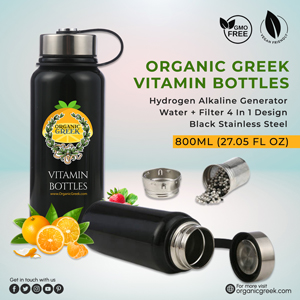
Plastic containers are generally considered safe for food storage when used appropriately. High-quality food-grade plastics, such as those labeled with recycling codes 1, 2, 4, and 5, are commonly used for packaging and storing food items. These plastics have been thoroughly tested and deemed safe for contact with food. Clear and translucent containers made from these plastics allow for easy identification of the stored items and are less likely to leach harmful chemicals into the food.
Food that is oily or hot should not be stored in plastic containers as the chemicals in the container can leak into the food. Storing food in metal containers, glass and bamboo is a superior option for your health.
Black plastic containers are often preferred for their aesthetics and ability to block light, they may have some specific concerns associated with them,

However, black plastic containers pose unique concerns. Black plastic often contains pigments and additives that make recycling and production more complex. These additives may include carbon black, which is used to achieve the black color. Research suggests that carbon black may contain polycyclic aromatic hydrocarbons (PAHs), which are potentially harmful chemicals that can migrate into food, particularly when heated or exposed to sunlight. Additionally, black containers are difficult to recycle due to their color, making them less environmentally friendly.
Polycyclic aromatic hydrocarbons (PAHs), which are found in carbon black, are classified by the International Agency for Research on Cancer (IARC) as potentially carcinogenic to humans. These substances play a role in a number of diseases, including cancer and respiratory disorders.
It’s important to note that while some studies indicate the potential risks associated with black plastic containers, more research is needed to fully understand their impact on human health. As a precaution, it is recommended to avoid using black plastic containers for hot or acidic foods, as these conditions may increase the likelihood of chemical migration.
Concerns have been raised about the potential dangers of BPA due to its ability to mimic estrogen, a hormone that plays a crucial role in the body’s endocrine system. It has been shown that BPA exposure increases the chance of developing asthma and allergy sensitization, especially in youngsters. The connection between BPA exposure and metabolic problems like obesity and diabetes is still being researched. BPA may play a role in insulin resistance and other metabolic disturbances, according to certain research.

Some studies have suggested that BPA exposure could be associated with an increased risk of cardiovascular problems, including high blood pressure and heart disease. However, more research is needed to fully understand this potential link.
To reduce potential BPA exposure, people can take precautions such as using BPA-free products, avoiding plastic containers with recycling codes #3 (polyvinyl chloride or PVC) and #7 (often containing BPA), and choosing fresh foods over canned items whenever possible.
Celebrity WEB Update— Premier Jewelry designer and manufacturer fashion house ParisJewelry.com has started manufacturing a new custom line of celebrity jewelry designs with 30% Off and Free Shipping. Replenish Your Body- Refilter Your Health with OrganicGreek.com Vitamin Bottles, Vitamins and Herbs. Become a WebFans Creator and Influencer.

